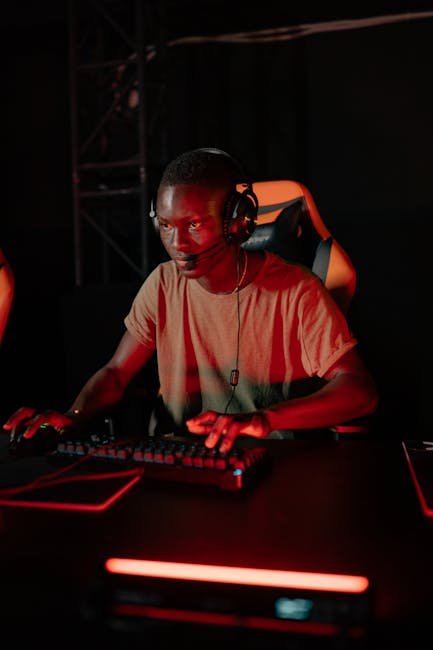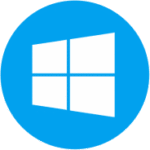How to Stream PC Games Like a Pro

- How to Stream PC Games Like a Pro
- The Essentials: What You'll Need
- A Powerful PC
- Reliable Internet Connection
- Good Microphone
- Webcam (Optional, but Recommended)
- Second Monitor (Highly Recommended)
- Choosing Your Streaming Software
- OBS Studio (Open Broadcaster Software)
- Streamlabs Desktop
- XSplit Broadcaster
- NVIDIA Broadcast / AMD Radeon Software
- Setting Up Your Stream: Getting Technical
- Installation and Initial Setup
- Sources: The Building Blocks of Your Stream
- Scenes: Your Stream Layouts
- Audio Mixer: Master Your Sound
- Output Settings: The Core of Your Stream Quality
- Test Stream: Don't Skip This!
- Going Live: Pro Tips & Best Practices
- Engage with Your Chat
- Consistency is Key
- Branding & Overlay
- Audio Quality First
- Monitor Your Performance
How to Stream PC Games Like a Pro
Ever watched your favorite streamer effortlessly play games, chat with thousands, and make it look like a breeze? You might think it requires a complex, expensive setup, but the truth is, anyone with a passion for gaming and a bit of technical know-how can dive into the world of live streaming.
Streaming PC games isn’t just about playing. It’s about sharing your experience, building a community, and perhaps even turning your hobby into something more. This comprehensive guide will walk you through everything you need, from essential hardware to advanced software settings and pro tips, to help you stream like a seasoned veteran. Let’s get started!
—
The Essentials: What You'll Need
Before you even think about hitting that “Go Live” button, you need to ensure you have the right tools in your arsenal. Think of these as your basic building blocks.
A Powerful PC
Your gaming rig isn’t just for playing; it’s also running encoding software, managing your webcam, and potentially displaying alerts.
* **CPU (Processor):** A strong multi-core processor (Intel i7/i9 or AMD Ryzen 7/9) is crucial for handling both gaming and encoding tasks simultaneously.
* **GPU (Graphics Card):** Your graphics card (NVIDIA RTX/GTX or AMD Radeon RX) will render your game, but it also often houses dedicated encoders (like NVENC) that can offload streaming tasks, freeing up your CPU.
* **RAM (Memory):** Aim for at least 16GB of RAM. More is better if you multitask heavily.
Reliable Internet Connection
This is non-negotiable. Your upload speed determines how smoothly your stream reaches your viewers.
* **Upload Speed:** You’ll need a stable upload speed of at least 5-10 Mbps for a consistent 1080p stream. Use speedtest.net to check yours.
* **Wired Connection:** Always use an Ethernet cable instead of Wi-Fi for maximum stability and minimal latency.
Good Microphone
Clear audio is paramount. Viewers will tolerate average video, but bad audio will make them leave quickly.
* **USB Microphones:** Great for beginners (e.g., Blue Yeti, HyperX QuadCast). Easy to set up.
* **XLR Microphones:** Offer superior quality but require an audio interface (e.g., Rode NT1, Shure SM7B). More complex, but professional-grade.
* **Headset Mics:** Convenient but often lower quality. Upgrade if you can.
Webcam (Optional, but Recommended)
A webcam helps viewers connect with you on a more personal level. Seeing your reactions adds a lot to the experience.
* **Resolution:** 1080p is standard.
* **Framerate:** 30fps is fine, 60fps is smoother.
* **Budget Options:** Logitech C920 series is an industry standard for a reason.
Second Monitor (Highly Recommended)
While not strictly essential, a second monitor will drastically improve your streaming workflow. You can monitor your chat, stream health, alerts, and other vital information without tabbing out of your game.
—
Choosing Your Streaming Software
This is the brain of your operation, taking your game, camera, and mic and sending them out to the world.
OBS Studio (Open Broadcaster Software)
* **Pros:** Free, open-source, incredibly powerful, highly customizable.
* **Cons:** Can have a steeper learning curve for beginners.
* **Best For:** Serious streamers who want full control and don’t mind a bit of setup.
Streamlabs Desktop
* **Pros:** User-friendly interface, built-in themes, alerts, and widgets. Based on OBS, so similar core functionality.
* **Cons:** Can be slightly more resource-intensive than pure OBS Studio.
* **Best For:** Beginners looking for an all-in-one solution with an easier setup process.
XSplit Broadcaster
* **Pros:** Polished interface, good for professional productions, reliable.
* **Cons:** Subscription-based (paid software).
* **Best For:** Those willing to pay for a streamlined, feature-rich experience.
NVIDIA Broadcast / AMD Radeon Software
* **Pros:** Hardware-accelerated features like noise suppression, virtual backgrounds, and eye contact correction.
* **Cons:** Specific to NVIDIA or AMD GPUs, not a full streaming solution on their own (work alongside OBS/Streamlabs).
* **Best For:** Enhancing your audio/video quality if you have a compatible GPU.
—
Setting Up Your Stream: Getting Technical
We’ll focus on OBS Studio and Streamlabs Desktop as they are the most popular choices. The core concepts apply to both.
Installation and Initial Setup
Download and install your chosen software. Most will guide you through an initial setup wizard, asking about your streaming platform (Twitch, YouTube, Facebook Gaming) and optimizing basic settings.
Sources: The Building Blocks of Your Stream
Sources are the individual elements you add to your stream.
* **Game Capture:** The cleanest way to capture your game. Select your specific game application.
* **Display Capture:** Captures your entire monitor. Useful for showing desktop elements, but can be less performant than Game Capture.
* **Webcam (Video Capture Device):** Your camera feed.
* **Microphone (Audio Input Capture):** Your primary microphone.
* **Alerts/Widgets:** Visual notifications for new followers, subscribers, donations (usually via browser source from Streamlabs/Streamelements).
Scenes: Your Stream Layouts
Scenes are collections of sources arranged in a specific layout.
* **Starting Soon Scene:** Full-screen graphic, music, chat widget.
* **Gameplay Scene:** Game capture, webcam, chat, alerts, stream overlay.
* **Be Right Back / AFK Scene:** Full-screen graphic, maybe a countdown or message.
* **Ending Scene:** Thank you message, social media links.
Audio Mixer: Master Your Sound
Monitor your audio levels here. Aim for your mic to be in the “good” (green) range and your game audio slightly lower.
* **Noise Gate:** Eliminates background noise when you’re not speaking.
* **Compressor:** Evens out loud and soft parts of your voice.
Output Settings: The Core of Your Stream Quality
This is where you tell your software how to encode and send your stream.
* **Encoder:**
* **NVENC (NVIDIA) / AMF (AMD):** Hardware encoders. Use your GPU for encoding. Generally recommended for gaming, as it has less impact on game performance.
* **x264 (Software):** Uses your CPU. Can offer better quality at lower bitrates, but is very CPU intensive and can impact game framerate.
* **Bitrate (Video):** How much data per second you’re sending. Higher bitrate = better quality, but requires more upload speed.
* **720p 30fps:** 2,500 – 3,500 kbps
* **720p 60fps:** 3,500 – 5,000 kbps
* **1080p 30fps:** 4,000 – 5,000 kbps
* **1080p 60fps:** 4,500 – 6,000 kbps (Twitch Affiliate/Partner recommended max is 6,000-8,000 depending on region/platform)
* **Resolution & Framerate:**
* **Output (Scaled) Resolution:** Usually 1920×1080 (1080p) or 1280×720 (720p). Start with 720p60 if your PC or internet struggles.
* **FPS (Frames Per Second):** 30fps or 60fps. 60fps is smoother for fast-paced games.
Test Stream: Don't Skip This!
Before going live to an audience, do a private test stream.
* **Twitch:** Go to your Stream Manager -> Preferences -> Channel -> enable “Archive Past Broadcasts” and disable “Store Past Broadcasts.” Stream for 10-15 minutes, then review the VOD for quality, audio sync, and dropped frames.
* **YouTube:** Set your stream privacy to “Private” or “Unlisted.”
—
Going Live: Pro Tips & Best Practices
Now that your setup is ready, let’s talk about the art of streaming.
Engage with Your Chat
This is where your personality shines. Acknowledge new viewers, ask questions, respond to comments. Your community is your most valuable asset.
Consistency is Key
Regularity helps viewers know when to find you. Establish a schedule and stick to it as much as possible. Even a few hours a week on consistent days is better than random long streams.
Branding & Overlay
A professional look sets you apart.
* **Overlays:** Graphics that sit on top of your game/webcam.
* **Alerts:** Animated notifications for follows, subs, etc.
* **Emotes & Badges:** Custom art for subscribers (once you’re affiliate/partner).
Audio Quality First
Always prioritize clear, balanced audio. Muffled mic, peaking audio, or loud game sound drowning you out will quickly turn viewers away.
Monitor Your Performance
Keep an eye










